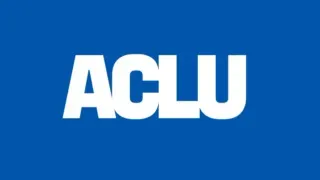June 3, 2019
AP Fact Check: Trump's Dig at McCain Skews Facts on Vet Care
Hope Yen and Eric Tucker READ TIME: 11 MIN.
President Donald Trump is making up facts about a veterans' health care program in his latest dig at late Sen. John McCain.
He says he's no fan of McCain, a Vietnam War veteran and tortured prisoner of war, faulting him for failing to pass a program that gave veterans the option to see a private doctor at public expense.
"He was never able to get Choice. I got Choice," Trump said Thursday to reporters. His jab at the late senator came as he defended a Trump administration order to keep a Navy ship named for McCain hidden from view during his recent trip to Japan as likely "well-meaning," though Trump said he knew nothing about the request.
But McCain did get it done on vets' care.
Trump routinely takes full credit for enacting the Veterans Choice program, ignoring the fact that it was signed into law by President Barack Obama in 2014. McCain was a co-sponsor of the legislation to overhaul the Department of Veterans Affairs. What Trump did was expand eligibility for the program.
Meanwhile, Trump is also claiming exoneration and a possible case against him "closed" in the Russia investigation. But special counsel Robert Mueller, who announced this past week the end to his work , specifically declined to vindicate Trump on obstruction charges. Mueller indicated it was up to Congress to decide whether to take up continued investigations and bring charges of wrongdoing against a sitting president.
A look at the claims, also covering his comments on Duchess Meghan, trade, the economy, North Korea and more:
DUCHESS MEGHAN
TRUMP: "I never called Meghan Markle 'nasty.' Made up by the Fake News Media, and they got caught cold!" – tweet Sunday.
THE FACTS: Trump, in fact, did use the word "nasty" to describe Meghan, the Duchess of Sussex.
Trump was referring to an interview Friday with the British tabloid The Sun in which he was asked about comments the former American actress made in 2016, where she threatened to move to Canada if Trump won the White House.
According to a recording of the interview released by The Sun, Trump responded: "I didn't know that. What can I say? I didn't know that she was nasty."
It's unclear, however, whether Trump's use of "nasty" referred to the duchess herself or the negative things she said about him in 2016. Trump also spoke positively about Meghan in the interview.
When asked whether it was good for an American to be a member of the British royal family, Trump said: "I think it's nice. I'm sure she will do excellently. She'll be very good."
The former Meghan Markle married Prince Harry, the Duke of Sussex, in 2018 and gave birth to their first child, Archie, in May.
___
VETERANS
TRUMP: "I disagree with John McCain on the way he handled the vets, because I said you got get to Choice. He was never able to get Choice. I got Choice." – remarks Thursday to reporters, according to a transcript released by the White House .
TRUMP: "We passed VA Choice and VA Accountability to give our veterans the care that they deserve and they have been trying to pass these things for 45 years." – Montoursville, Pennsylvania, rally on May 20.
TRUMP: "Another one they said could never get passed, they have been trying to do it for 40 years, we passed VA Choice. Veterans Choice." – El Paso rally on Feb. 11.
THE FACTS: Trump was not the first president in four decades to pass the Veterans Choice program. What Trump got done was an expansion of the Choice program achieved by McCain and Sen. Bernie Sanders, the main lawmakers who advanced the legislation signed by Obama.
McCain, an Arizona Republican, co-sponsored the legislation following a 2014 scandal at VA's medical center in Phoenix, where some veterans died while waiting months for medical appointments. Sanders was then chairman of the Senate Veterans Affairs Committee.
After helping pass the program, McCain also fought to expand it in his last months before dying of brain cancer last August. Trump signed the legislation last June, which is named after three veterans. The legislation's full name is the John S. McCain III, Daniel K. Akaka, and Samuel R. Johnson VA Maintaining Internal Systems and Strengthening Integrated Outside Networks Act of 2018, or MISSION Act.
The Choice program currently allows veterans to see doctors outside the VA system if they must wait more than 30 days for an appointment or drive more than 40 miles (65 kilometers) to a VA facility. Under the expansion, starting Thursday, veterans are to have that option for a private doctor if their VA wait is only 20 days (28 for specialty care) or their drive is only 30 minutes.
Still, the VA says it does not expect a major increase in veterans seeking care outside the VA under Trump's expanded program, partly because wait times in the private sector are typically longer than at VA. "The care in the private sector, nine times out of 10, is probably not as good as care in VA," VA Secretary Robert Wilkie told Congress in March.
___
RUSSIA INVESTIGATION
TRUMP: "NO COLLUSION, NO OBSTRUCTION, NO NOTHING!" – tweet Sunday.
TRUMP: "There was no crime." – remarks Thursday to reporters.
TRUMP, on Mueller's statement on finishing his work as special counsel: "There was insufficient evidence and therefore, in our Country, a person is innocent. The case is closed! Thank you." – tweet Wednesday.
SARAH SANDERS, White House press secretary: "The Special Counsel has completed the investigation, closed his office, and has closed the case. ... The report was clear_there was no collusion, no conspiracy_and the Department of Justice confirmed there was no obstruction. ...After two years, the Special Counsel is moving on with his life, and everyone else should do the same." – statement Wednesday.
THE FACTS: Mueller did not fully exonerate Trump or declare that a possible case against Trump to be "closed." While announcing his work was now finished, Mueller specifically left it open for Congress to decide on possible charges of wrongdoing. Mueller also did not say there was "insufficient evidence" as to possible crimes of obstruction, making clear that his report did not draw a conclusion.
Mueller said his team declined to make a prosecutorial judgment on whether to charge Trump, partly because of a Justice Department legal opinion that said sitting presidents shouldn't be indicted.
As a result, his detailed report factually laid out instances in which Trump might have obstructed justice, leaving it up to Congress to take up the matter.
"If we had had confidence that the president clearly did not commit a crime, we would have said so," Mueller said Wednesday. Based on that department's legal opinion, Mueller said, "the Constitution requires a process other than the criminal justice system to formally accuse a sitting president of wrongdoing."
Attorney General William Barr wrote in a March 24 letter that ultimately he was deciding that the evidence developed by Mueller was "not sufficient" to establish, for the purposes of prosecution, that Trump committed obstruction of justice. But Mueller explicitly declined to say that.
It's true the Mueller report did not find a criminal conspiracy between the Trump campaign and Russia, saying it had not collected sufficient evidence "to establish" or sustain criminal charges. However, the report did not assess whether "collusion" occurred.
___
TRUMP, on Mueller's relationship with former FBI Director James Comey, who was fired by Trump: "He loves Comey. You look at the relationship with those two. So whether it's love or deep like, but he was conflicted." – remarks Thursday to reporters.
THE FACTS: Though Comey succeeded Mueller as FBI director and though they served together in the Bush administration, the men are not known to be social friends. There is certainly no evidence, as Trump has repeatedly suggested, that they are "best friends" or have a relationship that is "love or deep like."
___
TRUMP: "I think he's totally conflicted. ...Robert Mueller should've never been chosen because he wanted the FBI job and he didn't get it. And the next day, he was picked as Special Counsel. So you tell somebody, 'I'm sorry, you can't have the job.' And then, after you say that, he's going to make a ruling on you? It doesn't work that way. Plus, we had a business dispute." – remarks Thursday to reporters.
THE FACTS: Trump makes a groundless charge that Mueller was "totally conflicted." Mueller, a longtime Republican, was cleared by the Justice Department's ethics experts to lead the Russia investigation.
According to the special counsel's report, when Trump previously complained privately to aides that Mueller would not be objective, the advisers, including then-White House chief strategist Steve Bannon, then-White House counsel Don McGahn and Reince Priebus, chief of staff at the time, rejected his complaints of an alleged business dispute and possible bad feelings over the FBI job as not representing "true conflicts." Bannon called the claims "ridiculous."
Bannon told Mueller's investigators that while the White House had invited Mueller to speak to the president about the FBI and thought about asking him to become director again, Mueller did not come in looking for a job. Mueller was previously FBI director from 2001 to 2013.
___
TRUMP: "They don't talk about Russia anymore because it turned out to be a hoax. It was all a hoax." – remarks Thursday to reporters.
TRUMP: "There's no nothing. It's nothing but a witch hunt." – remarks Thursday.
THE FACTS: A two-year investigation that produced guilty pleas, convictions and criminal charges against Russian intelligence officers and others with ties to the Kremlin, as well as Trump associates, is not a hoax. Mueller's report concluded there was "sweeping and systematic" Russian interference in the 2016 election.
Mueller charged 34 people, including the president's former campaign chairman, Paul Manafort, his first national security adviser, Michael Flynn, and three Russian companies. Twenty-five Russians were indicted on charges related to election interference, accused either of hacking Democratic email accounts during the campaign or of orchestrating a social media campaign that spread disinformation on the internet.
Five Trump aides pleaded guilty and agreed to cooperate with Mueller, and a sixth, longtime confidant Roger Stone, is awaiting trial on charges he lied to Congress and engaged in witness tampering.
___
ECONOMY
TRUMP: "Employment numbers are the best. We have close to 160 million people working today, which is more than we've ever had before." – remarks Thursday to reporters.
THE FACTS: It's true that more people are working now, but that is driven by population growth. A more relevant measure is the proportion of Americans with jobs, and that is still far below record highs.
According to Labor Department data, 60.6 percent of people in the United States 16 years and older were working in April. That's below the all-time high of 64.7 percent in April 2000, though higher than the 59.9 percent when Trump was inaugurated in January 2017.
The Labor Department reported that the unemployment rate dropped in April to 3.6% from 3.8%. That drop reflected a healthy economy for sure, but also an increase in the number of Americans who stopped looking for work.
___
NORTH KOREA
TRUMP, on limited progress by North Korean leader Kim Jong Un to "denuclearize": "So I think that he is – he is going to try, at some point. I'm in no rush at all. ...We, as you know, are getting the remains – continuing to get the remains. A lot of good things are happening." – news conference on May 27 with Japanese Prime Minister Shinzo Abe.
THE FACTS: U.S. efforts to recover additional remains of American service members have stalled amid souring relations with North Korea.
As tensions between the U.S. and North Korea spiked again, the Pentagon said last month it had suspended its efforts to arrange negotiations this year on recovering additional remains of American service members killed in the North during the Korean War. The Pentagon said it remained hopeful they can reach agreement for recovery operations in 2020.
The Defense POW-MIA Accounting Agency said it has had no communication with North Korean authorities since the Vietnam summit between Trump and Kim last February. That meeting focused on the North's nuclear weapons and followed a June 2018 summit where Kim committed to permitting a resumption of U.S. remains recovery; that effort had been suspended by the U.S. in 2005.
The agency said it had "reached the point where we can no longer effectively plan, coordinate, and conduct field operations" with the North during this budget year, which ends Sept. 30. The North, it said, never agreed to face-to-face negotiations to work out details for the recovery operations, such as payments required for the provision of support services by the North Korean army.
Last summer, in line with the first Trump-Kim summit in June, the North turned over 55 boxes of what it said were the remains of an undetermined number of U.S service members killed in the North during the 1950-53 war. So far, six Americans have been identified from the 55 boxes.
___
TRADE
TRUMP: "We're taking in billions of dollars in tariffs. China is subsidizing products. So the United States' taxpayers are paying for very little of it. " – remarks Thursday to reporters.
TRUMP: "You know, foolishly, some people said that the American taxpayer is paying the tariffs of China. No, no, no – it's not that way. They're paying a small percentage, but our country is taking in billions and billions of dollars." – news conference on May 27.
THE FACTS: That's not true. U.S. consumers and the public are primarily if not entirely paying the costs of the tariffs, as his chief economic adviser, Larry Kudlow, has acknowledged . That's how tariffs work: Importers pay the taxes and often pass on the cost to consumers. The U.S. is not "taking in" billions from China as a result.
A sustained trade dispute is not painless for China, either. Its goods become pricier and therefore less competitive. But China is not paying a tab to the U.S. treasury in this matter.
As Kudlow said, accurately: "Both sides will suffer on this." But in his view, "this is a risk we should and can take."
___
MARS
TRUMP: "Prime Minister Abe and I have agreed to dramatically expand our nations' cooperation in human space exploration. Japan will join our mission to send U.S. astronauts to space. We'll be going to the moon. We'll be going to Mars very soon." – news conference on May 27.
THE FACTS: Not very soon. The U.S. will almost certainly not be sending humans to Mars in his presidency, even if he wins a second term.
The Trump administration has a placed a priority on the moon over Mars for human exploration (President Barack Obama favored Mars) and hopes to accelerate NASA's plan for returning people to the lunar surface. It has asked Congress to approve enough money to make a moon mission possible by 2024, instead 2028. But even if that happens, Mars would come years after that. International space agencies have made aspirational statements about possibly landing humans on Mars during the 2030s.
___
IRAN
TRUMP: "If you look at the deal that (Vice President Joe) Biden and President Obama signed, they would have access – free access – to nuclear weapons, where they wouldn't even be in violation, in just a very short period of time. What kind of a deal is that?" – news conference on May 27.
THE FACTS: That's a misrepresentation of what the deal required . Iran would not have access to nuclear weapons capability in a "very short period" without violating the terms of the 2015 accord. The U.S. withdrew from the multinational agreement last year.
During the 15-year life of most provisions of the deal, Iran's capabilities were limited to a level where it could not produce a nuclear bomb. Iran was thought to be only months away from a bomb when the deal came into effect.
After 15 years, Iran could have an array of advanced centrifuges ready to work, the limits on its stockpile would be gone and, in theory, it could then throw itself into producing highly enriched uranium. But nothing in the deal prevented the West from trying to rein Iran in again with sanctions. The deal included a pledge by Iran never to seek a nuclear weapon. In return, partners in the deal eased sanctions on Iran.
___
Associated Press writers Darlene Superville, Cal Woodward, Christopher Rugaber, Robert Burns, Lolita C. Baldor and Michael Balsamo contributed to this report.
___
Find AP Fact Checks at http://apne.ws/2kbx8bd
Follow @APFactCheck on Twitter: https://twitter.com/APFactCheck






